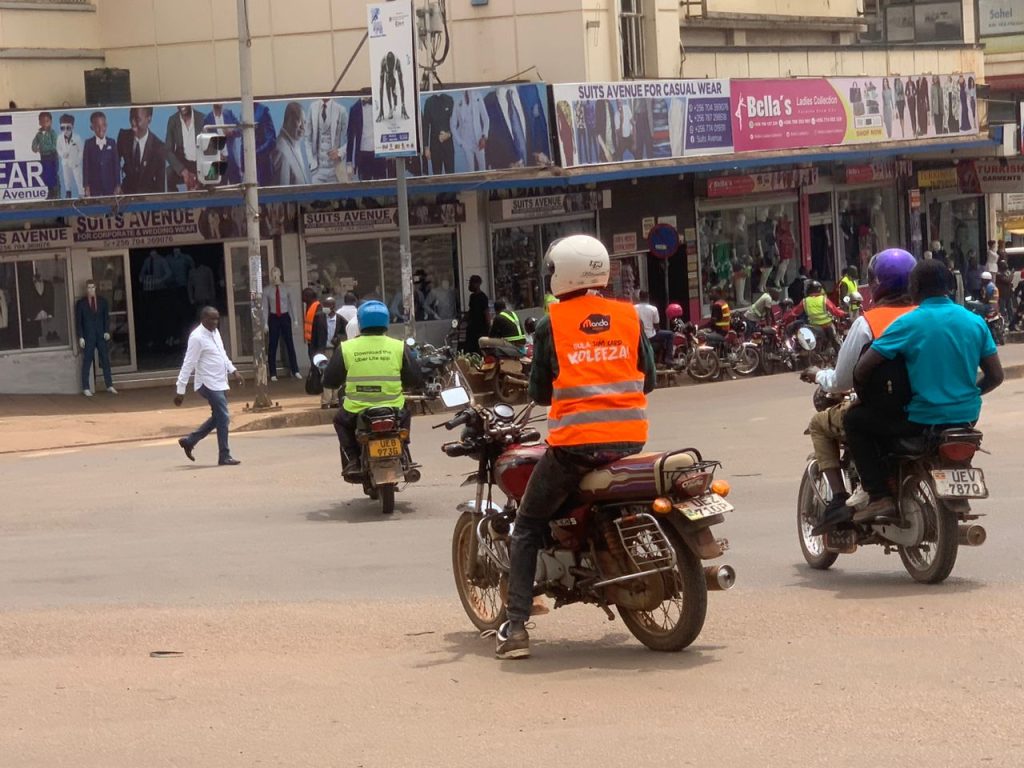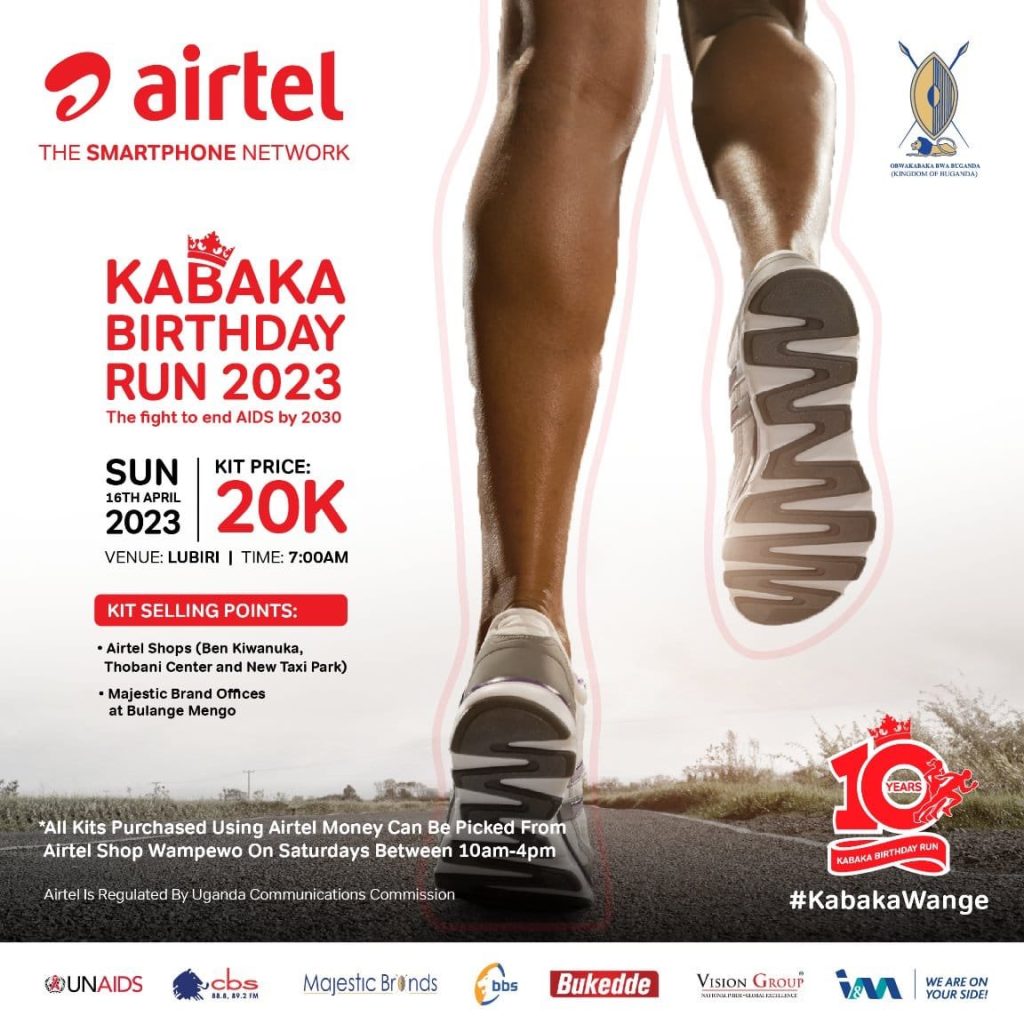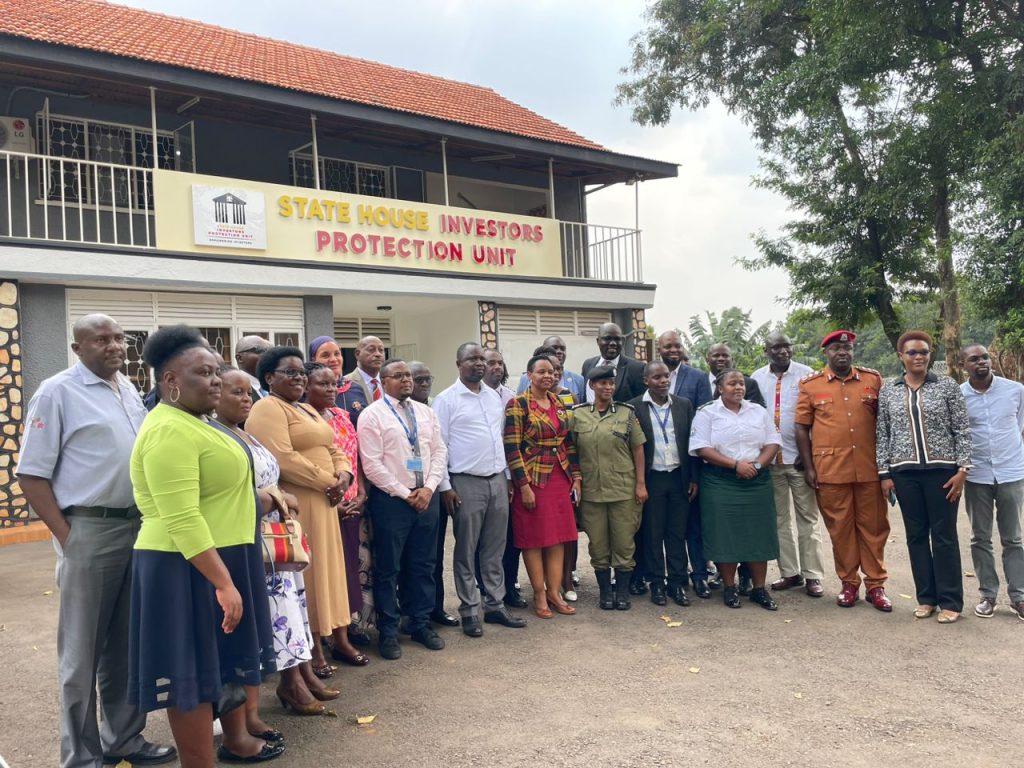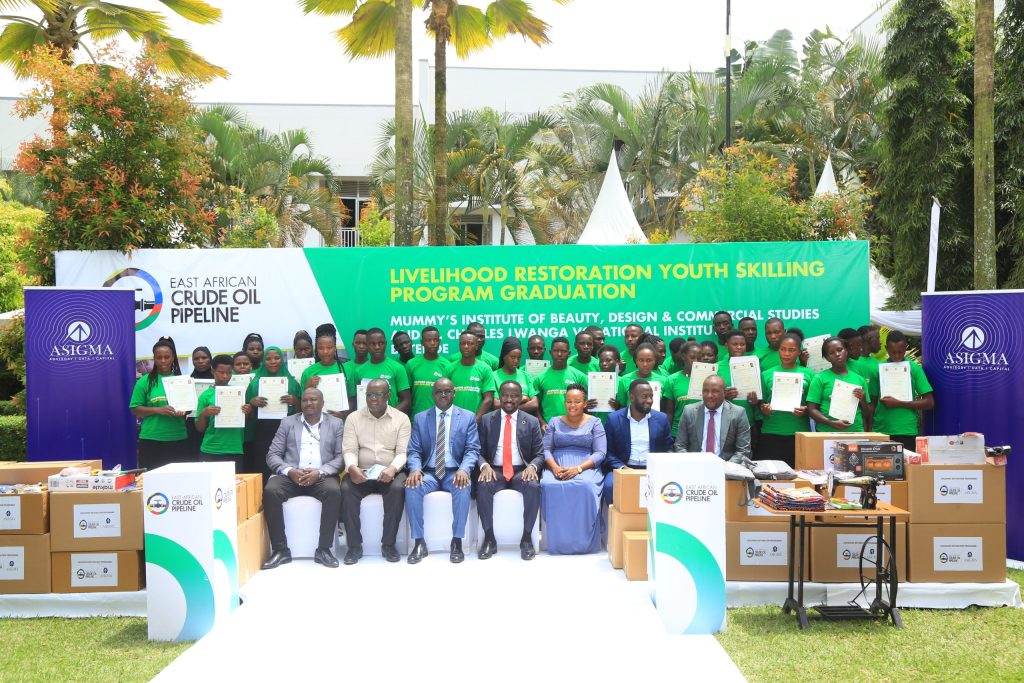
Courtesy Photo
The East African Crude Oil Pipeline (EACOP) Ltd has provided start-up kits to households affected by the project as outlined in the Resettlement Action Plan (RAP). The kits are intended to help families establish income-generating activities, enhancing their ability to support themselves.
The distribution of the kits follows the completion of vocational skills training programs by the affected households at selected institutions in Sembabule and Kyotera Districts.
The initiative is part of the company’s commitment to empower project-affected households through a Global Livelihood Restoration program, aiming to restore, transition, and improve their livelihoods by utilizing available household resources post-resettlement.
A total of 39 students completed vocational training from two institutions: St. Charles Lwanga Technical Institute in Butende, and Mummy’s Institute of Beauty Design and Commercial Studies in Masaka City. Among the graduates are 27 individuals, representing 69 percent of the total, who received training from Mummy’s Institute, comprising 18 females and 9 males.
Meanwhile, St. Charles Lwanga Technical Institute saw 12 male graduates. In summary, 69 percent of the enrolled youth completed their training at Mummy’s Institute, while 32 percent graduated from St. Charles Lwanga Technical Institute.
Each graduating student received a complete start-up kit, carefully identified and procured to suit their vocational program. These kits were provided to the 39 graduates across various categories, including Drivers, Hairdressers, Tailors & Garment Designers, Welders, Builders, Plumbers, Caterers, Motor Vehicle Mechanics, Motorcycle Mechanics, Secretaries, Bricklayers, Carpenters, and Electricians.
The project, facilitated by the contractors Asigma, provided support to the youth through tuition, scholastic materials, and a basic starter pack upon completion.
The East African Crude Oil Pipeline will traverse through over ten districts in Uganda, and therefore it has led to project-related land acquisition and restrictions leading to a loss and access of assets with a corresponding loss of income sources or other means of livelihood.
It is against such a background that a Livelihood Restoration Program was created to provide project-affected persons whose livelihoods or income levels are adversely affected an opportunity to improve, or at least restore, their means of income-earning capacity, production levels, and standards of living.
The program has three phases, with the first phase aimed at providing transitional support to households as a short-term measure to support their food security in terms of food baskets within the first 6-12 months as soon as the affected Households vacate the land. The amount they receive and how long they’re supported depends on how heavily they have been impacted.
The second and third phases aimed to provide households with opportunities and support to improve their livelihoods back to pre-project levels through Agricultural Improvement activities and enhancing skills of household members through vocational training, while the third phase involves additional optional packages that will be delivered to PAHs after.
For easy coordination, the 10 districts have been subdivided into two sections, South and North. The south section covers the districts of Sembabule, Gomba, Lwengo, Kyotera, and Rakai and the North covers the districts of Hoima, Kikuube, Kyankwanzi, Kakumiro, and Mubende.
Story by: Paul Murungi
